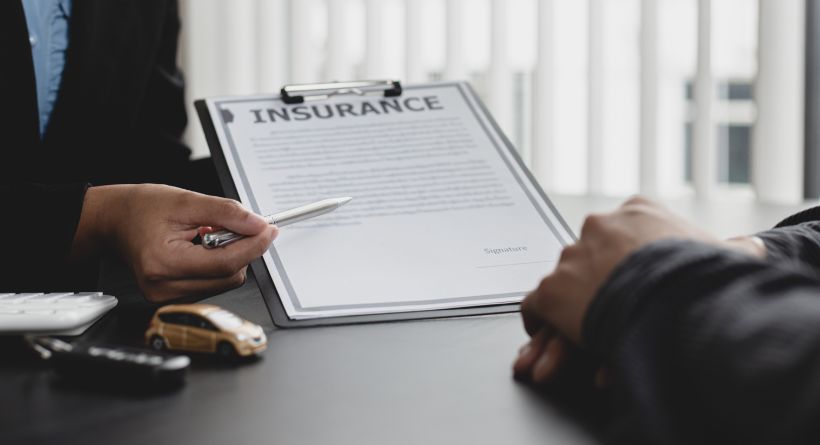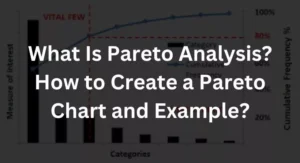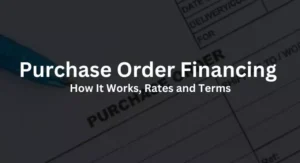
Accidents occur whether or not you plan for them. Getting small business insurance is one approach to shield your company from unforeseen events. Learning about your alternatives is the greatest approach to choose the appropriate insurance for your company. For your consideration, here is a list of 26 different forms of company insurance.
Also Read: How to Get a Bank Loan for Your Small Business
What is business insurance?
In the case of an accident or emergency, business insurance will safeguard you and your organization from suffering financial damage. According to Rorie Devine, CTO of Gro.Team, it’s critical for firms to submit insurance applications since they will aid in defraying the expenses of liability and property damage claims.
Business News Daily quoted Devine as saying, “If you don’t have business insurance, as a business owner, you face the very real chance of having to pay out of pocket for expensive damages and legal claims against your firm.” “Depending on the cost, this may completely shut down your firm without insurance, meaning that even while you may not need to make many insurance claims, just one usage might result in the insurance cost immediately paying for itself.”
Protecting your business against liability
The most important forms of company insurance shield you against responsibility. Your company and the services you provide will determine the kind of liability insurance you need.
Let’s look at a few common forms of liability insurance.
General liability insurance
General liability insurance, also referred to as business liability insurance or commercial liability insurance, is crucial protection against a variety of claims, including bodily injury, property damage, personal injury or advertising injury, medical expenses, operations involving finished goods, and damage to rental property.
Most small company owners and contractors need to obtain general liability insurance of some kind. Remember that your costs will vary depending on the particular aspects of your company while shopping for small business insurance and comparing plans.
Business owners policy (BOP)
A business owner’s insurance policy, or BOP, which is sometimes known as general liability insurance and property coverage may be combined. In addition to commercial building and mobile property coverage, a BOP offers liability coverage for claims including client injuries, property damage, and product-related issues.
A lot of BOPs also contain business interruption insurance, which compensates you for lost profits if you must shut due to a covered claim. Owners of small and medium-sized enterprises including restaurants, retail shops, and wholesalers are most suited for this coverage type. Remember that your workers are not covered by BOP insurance.
Employment practices liability insurance (EPLI)
Liability insurance for employment practises is often advantageous for small enterprises with staff. This kind of insurance shields you in the event that an employee files a claim against you alleging that you wrongfully disciplined or terminated them, engaged in sexual harassment, discrimination, negligent evaluation, violated their employment contract, mismanaged their benefits, or intentionally caused them emotional distress.
While some insurers provide EPLI as a standalone policy, others do so as an addition to their BOP. The level of coverage you choose will determine the terms and conditions of your insurance. The sort of company you have, the number of workers, and different risk variables all affect how much EPLI will cost you.
Professional liability insurance
Businesses that provide professional services are safeguarded by professional liability insurance, often known as errors and omissions (E&O) insurance. E&O insurance is often used by B2C companies to defend against allegations that their customers’ financial plight or physical harm was caused by their services.
Professional liability insurance often includes coverage for medical misconduct. Professional service providers like consultants and financial advisers need this form of insurance as well. The cost of professional liability insurance varies by profession and sector. A doctor would, for instance, probably charge more than a CPA.
Contractor’s professional liability insurance
You must get some kind of contractors’ professional liability insurance if your company works in the design-build or construction management industries. This insurance covers experts against construction-related mistakes or losses that may occur during the planning, designing, and building of a structure. Additionally, it might shield you from mistakes made by independent contractors working on a project.
Directors and officers (D&O) liability insurance
You need D&O insurance if your company has a corporate board of directors or advisory group. If your directors and officers are personally sued for negligent business management, this insurance protects their assets (e.g., failure to comply with workplace laws, fraud, theft of intellectual property, misrepresentation of company assets, or misuse of company funds).
Management liability insurance
A bundle of coverages known as management liability insurance is used to safeguard corporate, public, and nonprofit organizations against a variety of board-level risks. It is bought by companies having a board of directors and offers protection against the hazards associated with running a corporation. Employment practices liability, fiduciary responsibility, and D&O liability are often covered under management liability insurance policies.
Product liability insurance
A conventional product warranty or guarantee cannot provide the same level of assurance and protection as product liability insurance. This coverage safeguards your company in the event of a product-related litigation or harm or injury to a third party caused by a product. Customers may file a lawsuit against you, for instance, if your goods had a lithium battery that caught fire and hurt them. You are protected in this situation by product liability insurance.
Protecting your business property and equipment
Your business operations depend on your company’s property, and it may be expensive to restore any uninsured property damage. Different forms of property insurance may safeguard your vehicles, buildings, and other property. Whether you own or rent the property will determine the kind of coverage you need.
Commercial property insurance
Commercial property insurance protects your tangible assets (buildings, machinery, supplies, tools, furniture, and personal property) and provides cash coverage in the event of fire, theft, or other loss-related property damage.
Basic to extensive property insurance coverage is available (and the price scales reflect that), but small and midsize firms with physical assets often need some level of this coverage. Your lender will need you to obtain this coverage unless you own your business property entirely (i.e., there is no lien or mortgage against it).
Homeowners insurance
Check the business coverage under your homeowners insurance if you operate a home business or keep business items in your residence. For business equipment or property kept in your home, homeowners insurance sometimes only offers little coverage ($2,500, for example), and other plans don’t cover any commercial property at all.
Those who run a home-based company might look into a homeowner’s policy endorsement or an in-home business policy for more thorough business insurance. Lenders will demand homeowners insurance up until the mortgage is paid, much as they do with commercial property insurance.
Business renters insurance
Businesses that use one or more leased locations must have business renters insurance. It will cover events that take place there, such as fires, floods, accidents, and damage to buildings or other property resulting from natural catastrophes. Many problems that other plans cover are also covered by this kind of insurance, but only for rental places.
Personal auto insurance
You could be protected by your personal auto insurance if you work for yourself and use your personal car for work-related activities. You may be able to get away with regular personal vehicle insurance that is intended for business use if you own your car, truck, or van and just infrequently use it for work. However, you could want a business automobile insurance policy if you drive a company-owned vehicle, your car is allocated only for work, or you require more coverage.
Commercial auto insurance
Similar to personal auto insurance, commercial auto insurance safeguards your vehicles in the case of damage, accident, or liability claims. However, commercial car insurance offers extra protection, such as larger coverage limits, hired-vehicle coverage, non-owned vehicle coverage, loading and unloading exposure, property and liability trailer exposure, and more.
If you own commercial cars, dump trucks, tow trucks, snowploughs, semi-trucks, trailers weighing more than 10,000 pounds, or vehicles with fitted business equipment, you probably require this kind of auto insurance (e.g., toolboxes or ladders).
Business overhead expense (BOE) insurance
Your disability insurance complements your company overhead expenditure insurance, sometimes referred to as business expense insurance. If you become handicapped and are unable to run your company, BOE insurance will cover the costs of operating it (based on real costs, such as power bills and staff pay). However, as an employer, BOE insurance does not cover your wages while you’re unemployed.
Small medical clinics, architectural and accounting companies, legal offices, and other businesses often invest in this kind of insurance.
Protecting your executives and employees
One of the most valuable resources in your organization is your crew. Having insurance that protects both you and your workers is essential. You and your team will choose the sort of insurance you need (and legal requirements). Discover the common insurance options that are available to safeguard you and your staff.
Workers’ compensation
An employee who sustains a work-related sickness or injury is entitled to workers’ compensation insurance, sometimes referred to as workers’ comp or workman’s comp, which pays for medical expenses as well as a percentage of lost income. Employees who receive workers’ compensation payments forfeit their right to sue your business for the sickness or injury. The law often requires this insurance.
Disability income insurance
In that it temporarily replaces an employee’s lost pay if they are unable to work due to a disability, disability insurance is comparable to workers’ compensation. But unlike workers’ compensation, which only covers difficulties linked to the workplace, disability insurance will cover illnesses or injuries that happened both on and off the job. The law may sometimes mandate this kind of insurance.
Key person insurance
When a top executive of your company passes away, key person insurance, also known as key man insurance or key woman insurance, helps compensate lost earnings. Your company pays the premium while the key employee is still living and receives a death benefit when they die away. These advantages may be crucial for maintaining your company’s operations or hiring new personnel.
Life insurance
You may get a life insurance policy for yourself and any other employees in your company. Similar to key person insurance, this offers financial support to a beneficiary in the case of your passing. You may feel at ease knowing that your death won’t put a financial strain on your loved ones or business partners if you have life insurance in place.
Protecting your business from disasters
You’ll want to be protected in case an unplanned tragedy affects your company. An uninsured business may have one catastrophe that costs more than it is worth, causing irreversible financial loss and legal action. You will need a mix of disaster insurance to cover your company.
Business interruption insurance
One of the most typical forms of protection that most small companies need is business interruption insurance, sometimes referred to as business income insurance. Firm interruption insurance can assist cover lost revenue or running costs like mortgage or rent, loan payments, taxes, and payroll if a catastrophe occurs and your business is forced to close for a while (such as a fire, flood, theft, building collapse, or civil authority event). You may include business interruption insurance in your BOP.
Comprehensive crime insurance
Crime insurance may shield your company against financial damage brought on by criminal behaviour, such as theft of client property, employee dishonesty, forgery and alteration, loss of money and securities, and computer and funds transfer fraud. You will need some kind of crime insurance if you have workers or deal with sensitive information. Verify if the supplier offers coverage for your industry before buying an insurance.
Credit insurance
Credit insurance, commonly referred to as payment protection insurance, is an option for small companies with loans or credit cards. In the case of a financial shock, credit insurance assures that payments will still be paid (such as a death, disability, or unemployment). Credit insurance, in contrast to disability insurance, only pays your lenders what you owe; it does not compensate your employer.
Cyber insurance
Protecting your company’s technology is essential in the digital age. To guard against damages from cyberattacks like ransomware, viruses, and data breaches, small companies should get cyber insurance. Data breach insurance and cyber liability insurance are two types of cyber insurance that may assist small firms recover (geared toward larger businesses that need more coverage).
Product recall insurance
Product recall insurance may provide your company the financial support it needs to recall a faulty product from the market. Manufacturers often need this insurance to pay for the expenses of recalls linked to consumer notification, shipment, and disposal.
Inland marine insurance
Inland marine insurance is an option for small enterprises with moveable property to safeguard their tools, goods, or supplies while they’re being transported by truck or train. Even though the term “marine” indicates water, this insurance only covers the transit of property across land and temporary storage of the item by a third party.
Commercial umbrella insurance
Owners of businesses may want to consider umbrella insurance as an additional measure of security. The expense of extra liability that exceeds the limitations of an underlying policy, such your general liability or business vehicle insurance, is covered by commercial umbrella insurance, which is comparable to personal umbrella insurance but has greater coverage limits. Commercial umbrella insurance, while often used synonymously with excess liability insurance, may sometimes pay claims that the underlying policy wouldn’t otherwise cover.
Disaster insurance
You should get catastrophe insurance if your company is vulnerable to earthquakes, floods, tornadoes, or other natural calamities. These regulations are particular to the kinds of disasters that your region is vulnerable to. For instance, owing to the increased likelihood of an earthquake, firms in California should think about earthquake insurance. Although these insurance might be pricey, they are necessary to safeguard your company from calamities that are likely to strike your neighbourhood.
Choosing a combination of insurance types
Every business has different insurance requirements, so depending on your location, business, and sector, you will need a variety of business insurance policies. Each small business owner should evaluate their unique requirements and responsibilities to create the mix that best protects their company, according to Alex Roje, partner at Lathrop GPM.
Think about the obligations or concerns that keep you up at night, she said, and then meet with a trustworthy, knowledgeable insurance broker to develop a strategy to address them and get their opinion on any extra coverages you may want.
Choose an insurance plan that is comprehensive (or simple) enough to meet your related risk and responsibility after determining the sort of coverage you need. The price of insurance goods shouldn’t be the only consideration, according to Roje.
Cheaper isn’t always the best option, according to Roje. You could be purchasing a Pinto model of insurance when you really required a Ferrari or at least a Toyota.
How to choose business insurance
It might be difficult to decide which small business insurance products your company needs. Here are some tips for navigating this environment and making the best choice:
Tally your assets.
What your insurance must specifically cover must be clear to you.
Think about your risks.
Every company has a distinct set of hazards. Both a dog groomer and a firm that hires jet skis run quite different risks, yet either one may face legal action if anything goes wrong, and both stand to lose a lot in the event of theft or a natural catastrophe.
Consider your responsibilities.
Different risk kinds might apply to professional services. When you provide these services, you are responsible for having expertise. That means you risk getting into legal and financial difficulties for honest errors or lousy counsel. It’s critical to understand your duties and have sufficient liability insurance for them.
Compare coverage to cost.
There is always a big concern of money. While it may be tempting to get the bare minimum of coverage in order to reduce premium costs, insufficient insurance poses a serious risk to small companies. Look into comprehensive plans, additional coverage, and add-on features to evaluate all that could be appropriate for your situation. Ironically, getting two policies seldom results in a premium increase of two.







